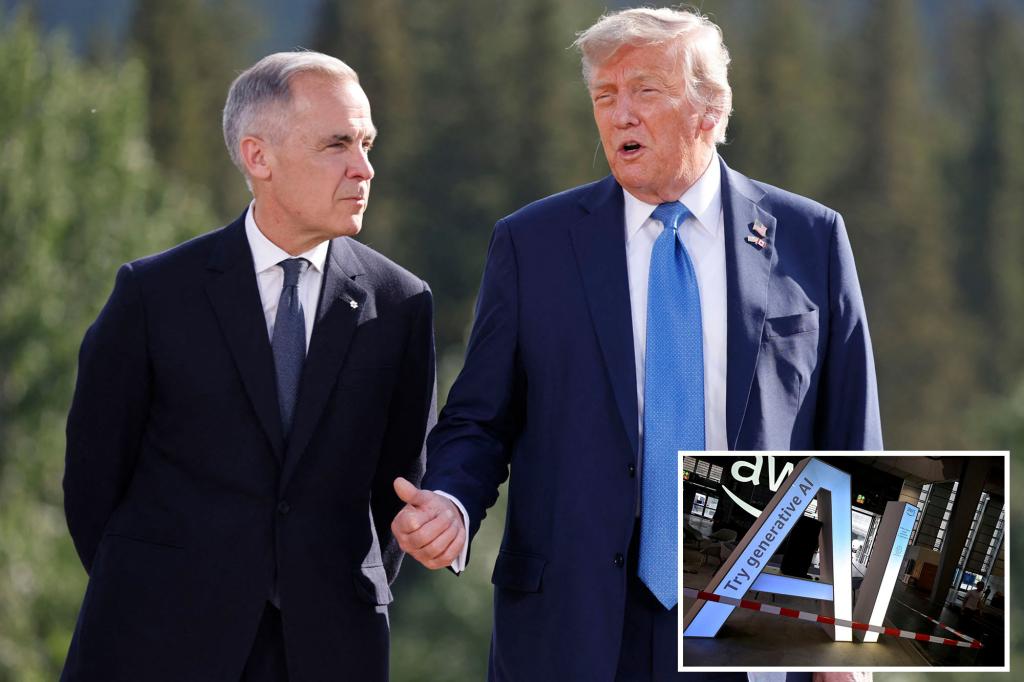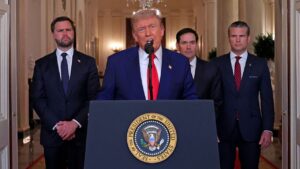
Canada has unexpectedly withdrawn its plan to implement a new digital services tax on American technology firms, mere days after former President Donald Trump condemned the initiative as a “direct and blatant attack” on the United States. The decision came just hours before the tax was set to take effect, as Canadian Prime Minister Mark Carney seeks to revive stalled trade negotiations with the US ahead of a critical July 21 deadline.
The proposed levy, which would have imposed a 3% tax on revenue from Canadian users on companies like Amazon, Google, Meta, Uber, and Airbnb, was met with fierce opposition from Trump. The former president promptly terminated trade discussions last Friday, threatening to impose new tariffs on Canadian goods within a week, a move that could have further strained US-Canada relations.
In a statement on Truth Social, Trump criticized the tax as an emulation of the European Union’s approach, which is also under negotiation with the US. “We have just been informed that Canada … has just announced that they are putting a Digital Services Tax on our American Technology Companies, which is a direct and blatant attack on our Country,” Trump declared. “Based on this egregious Tax, we are hereby terminating ALL discussions on Trade with Canada, effective immediately.”
Background and Economic Implications
The digital services tax was initially announced in 2020 to address concerns that major technology companies operating in Canada were not paying sufficient taxes on revenues generated from Canadian users. According to a statement from Canada’s finance ministry, “Canada’s preference has always been a multilateral agreement related to digital services taxation.”
Had the tax been enforced, it would have been applied retroactively, potentially leaving these companies with a $2 billion bill due in the US by the end of the month. This financial burden, coupled with the threat of retaliatory tariffs from the US, could have had significant economic repercussions for both nations.
Diplomatic Maneuvers and Political Reactions
Prime Minister Carney’s office revealed that he spoke with Trump on Sunday night, agreeing to pause the tax to facilitate the resumption of trade talks. Finance Minister François-Philippe Champagne is now tasked with introducing legislation to rescind the tax.
In the Oval Office, Trump expressed confidence that Canada would retract the tax, stating, “Economically we have such power over Canada. We’d rather not use it. It’s not going to work out well for Canada. They were foolish to do it.”
The breakdown in negotiations followed a meeting between Trump and Carney at the G7 summit in mid-June, where they had agreed to finalize a new economic deal within 30 days. The sudden halt of the digital services tax marks a significant shift in Canada’s approach, as it seeks to maintain favorable trade relations with its southern neighbor.
Expert Opinions and Future Prospects
Experts suggest that the decision to withdraw the tax reflects a pragmatic approach by Canada to avoid escalating trade tensions. “This move underscores the importance of US-Canada trade relations and the need for diplomatic solutions to complex economic issues,” noted Dr. Emily Chen, an international trade analyst.
As both countries prepare to resume negotiations, the focus will likely shift towards finding a mutually agreeable framework for digital services taxation. The outcome of these talks could set a precedent for how digital economy taxation is handled globally, particularly as other nations grapple with similar challenges.
Meanwhile, Canadian businesses have urged consumers to prioritize local products over American imports, a sentiment echoed by various industry leaders. The resolution of this dispute will be closely watched by stakeholders on both sides of the border, as well as by international observers keen to see how such bilateral issues are navigated in the digital age.
The coming weeks will be crucial in determining the future of US-Canada trade relations and the broader implications for global digital taxation policies. As negotiations proceed, both nations will need to balance economic interests with diplomatic considerations to achieve a sustainable resolution.





